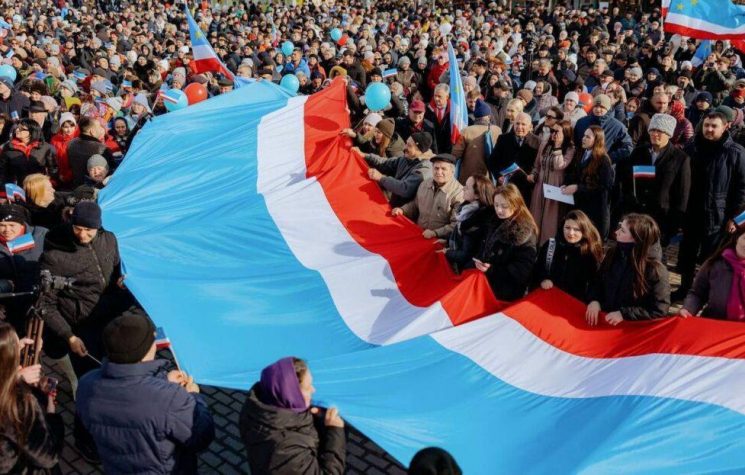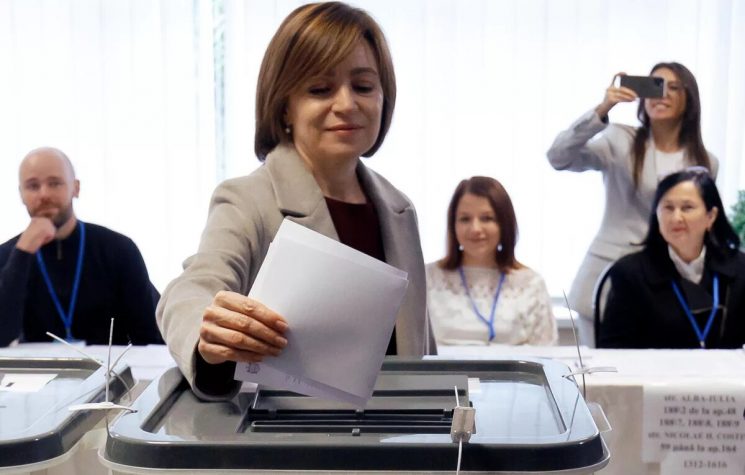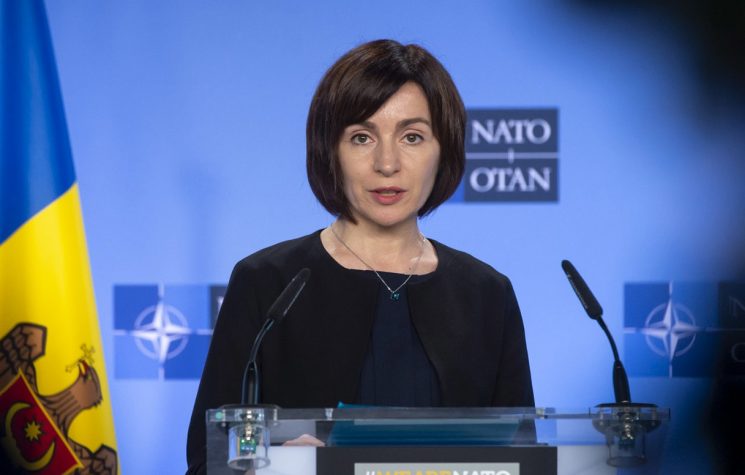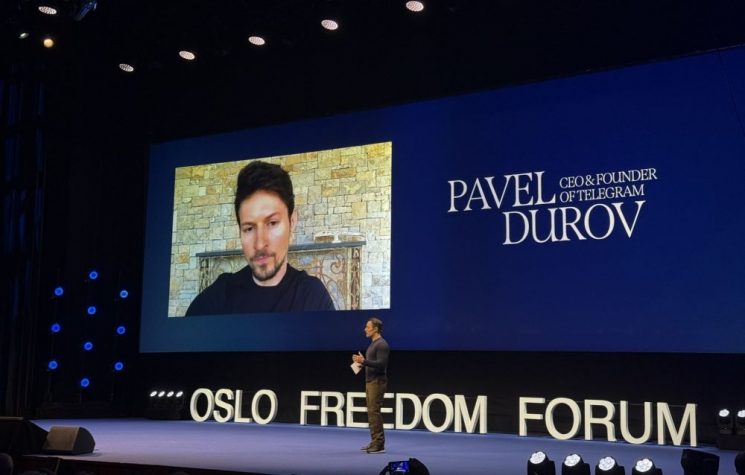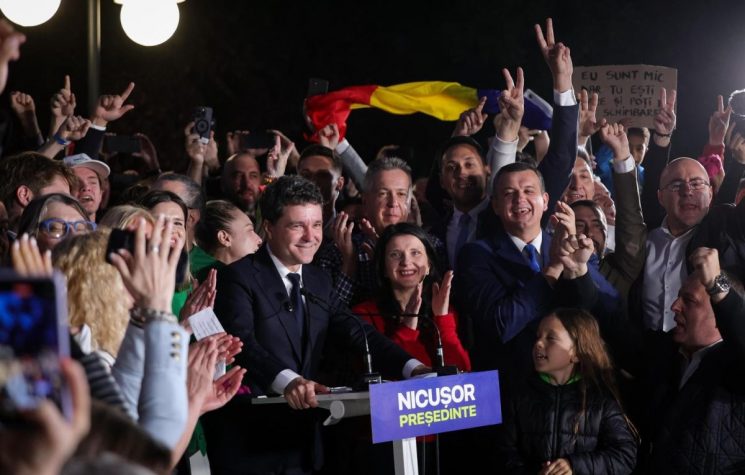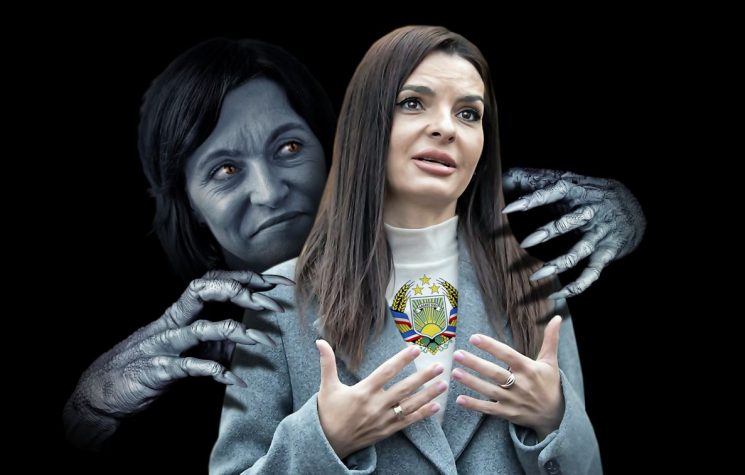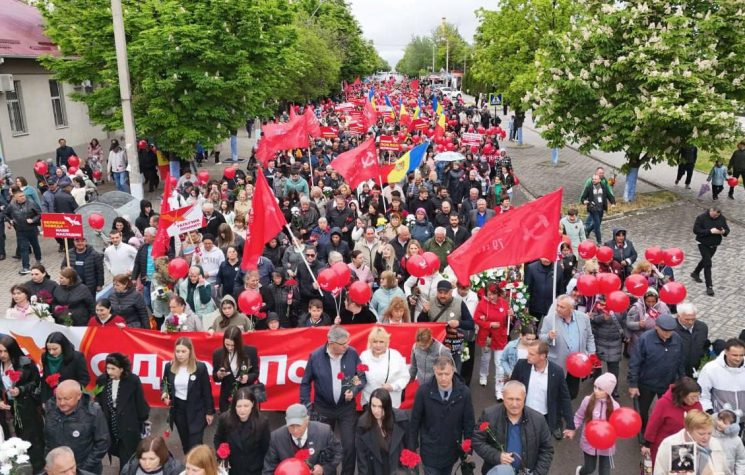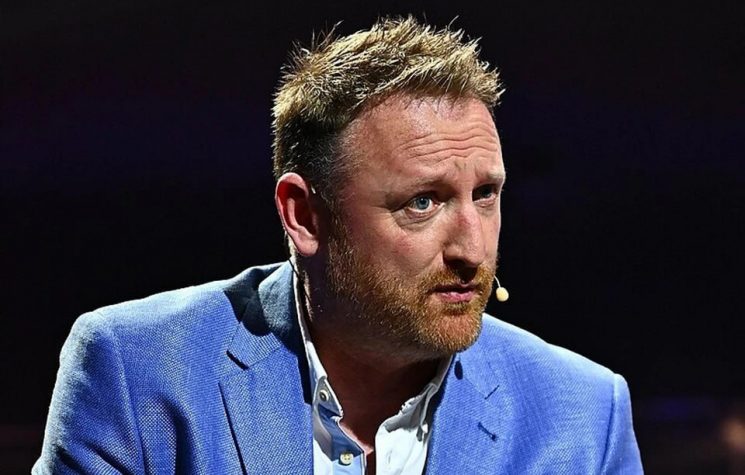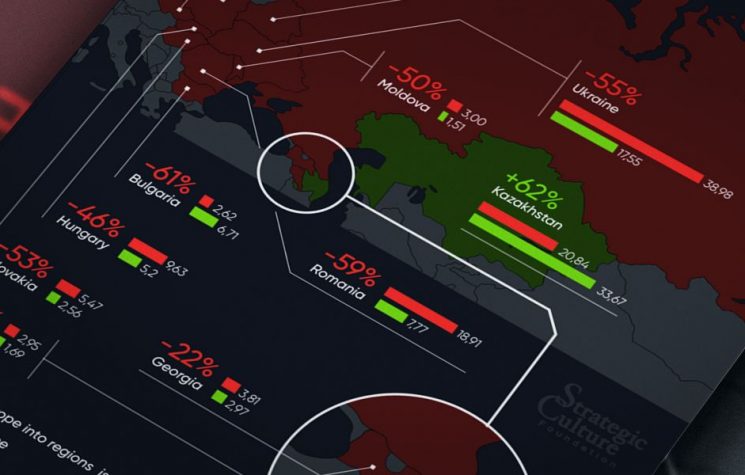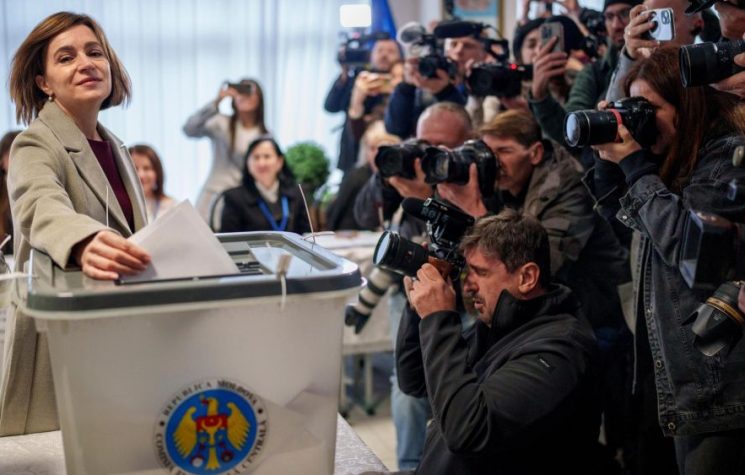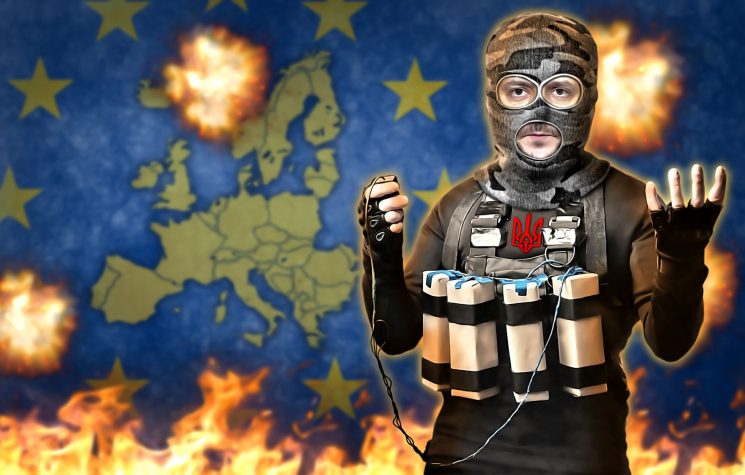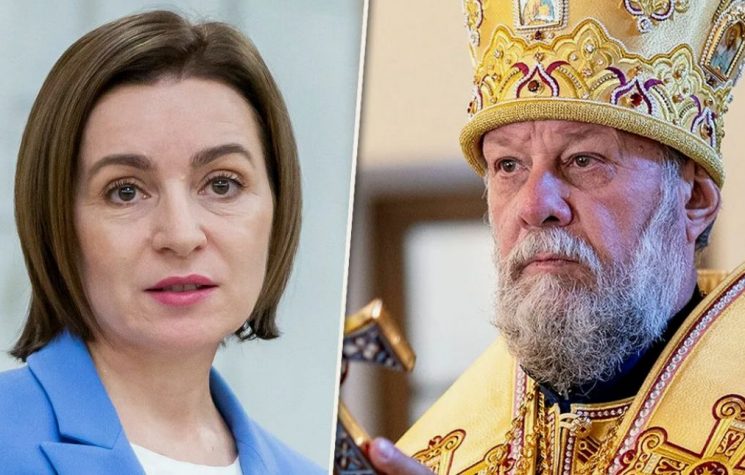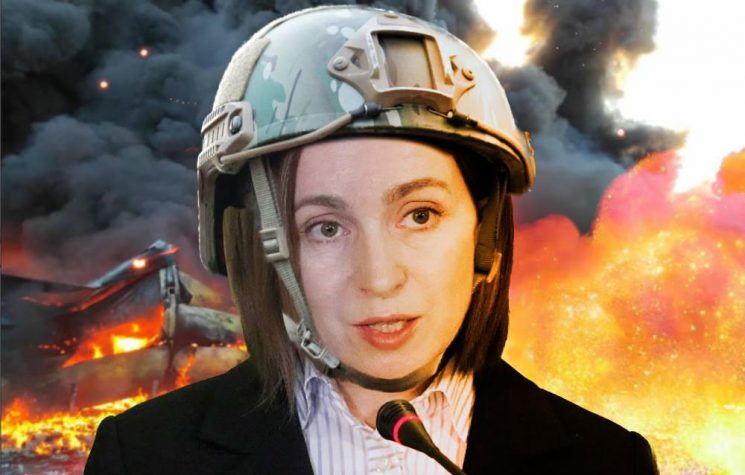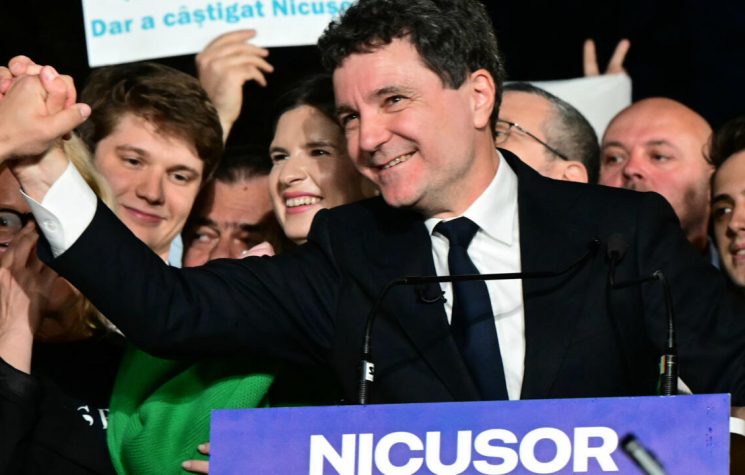If, within a country living in the Western orbit, the will of the people prevails over political pressure, what can happen? This is the first question to ask about recent events in Moldova.
Join us on Telegram![]() , Twitter
, Twitter![]() , and VK
, and VK![]() .
.
Contact us: info@strategic-culture.su
If, within a country living in the Western orbit, the will of the people prevails over political pressure, what can happen? This is the first question to ask about recent events in Moldova.
The situation in the country, as Stephen Karganovic has brilliantly reported, is quite tense. The Moldovan government, led by Maia Sandu — considered close to the interests of the collective West and re-elected president last autumn in circumstances deemed by many to be highly irregular — is now in a state of political instability, which cannot be attributed to Russian interference (as some Western journalists have claimed), but rather to the regime’s structural inability to address the deep social and ethnic problems afflicting the country, which, due to its geographical position, is a key point for NATO and the European Union’s advance towards the East, as well as a vital logistical base for supporting the Ukrainian government. Despite this, the Moldovan population, regardless of ethnicity, is increasingly sceptical of a political elite that appears increasingly tied to external interests. This sentiment is also evident in neighbouring Romania, where recent presidential elections (which were highly controversial) seem to confirm a similar dynamic. In this context, the power of the pro-Western Moldovan elite appears inherently precarious and requires constant distraction of public opinion, often through the construction of artificial external threats.
The numerous allegations of plots and attempts at destabilisation that have been raised by the Moldovan authorities over time have never gone beyond vague statements. None have ever been subjected to a regular trial, where credible evidence would have had to be presented. This dynamic closely resembles the characteristics of psychological operations carried out by Western secret services with the aim of keeping local governments in a state of dependence and constant alert.
The most important thing to bear in mind is that Moldova, together with Romania, is one of the countries chosen by NATO to serve as an operational base and command centre for the eastern front.
Maia Sandu, described by some as the “Zelensky of Chişinău”, has adopted an increasingly rigid and provocative line towards the eastern region of the country, fuelling internal tensions and dividing Moldovan society. The communities of Gagauzia and Taraclia, in particular, are showing a growing desire for secession, while discontent is growing among Russian-speaking Moldovans.
At the same time, Moldova’s process of rapprochement with NATO has intensified, despite opposition from the majority of the population: according to 2024 polls, 62% of Moldovans oppose joining the Alliance, while over 70% would prefer to maintain a position of neutrality. Despite this, joint military exercises with US, Polish and Romanian forces took place near Transnistria, with foreign helicopters flying over Chişinău and restrictions imposed on PMR vehicles. These actions are accompanied by measures limiting the use of the Russian language in the country.
In 2023, Ukraine also strengthened its military presence in the Odessa region, deploying 4,000 soldiers near Transnistria, coinciding with an official visit by the Ukrainian foreign minister to Chişinău. Despite the difficult economic situation, with a steady rise in the prices of essential goods, the Moldovan government had already approved substantial military spending.
Faced with the escalation and growing isolation of the separatist region, the Transnistrian parliament officially requested Russia’s help, appealing to the Duma, the Federation Council, the OSCE, the UN, the EU and other international organisations to take concrete measures to protect the PMR. Moscow responded by accusing the Moldovan government of erasing everything Russian, blocking negotiations in the 5+2 format and exerting strong economic and political pressure on the region. The Kremlin rightly described Chişinău’s policy as a direct derivation of Western strategies.
A political battle
On 15 May, Moldova set a great example of how to react to the soft power of globalist lobbies in the region, so powerful in Romania, the geographical neighbor, where Soros has had a historic presence since before the collapse of the USSR, by managing to prevent the continuation of LGBT propaganda.
This is not a minor issue, not at all. Keep in mind that the collective West has established a system of control and political interference in Moldova, led by the Anglo-American alliance, consisting of blackmail, leverage and provocation. Now, however, something is changing. The perception of the population is changing, as it sees the region under the gun of foreign plutocratic interests; areas of military influence are changing, with the EU moving towards impossible rearmament and Russia quietly racking up successes on the Ukrainian front; monetary balances are changing, with Moldova no longer able to sustain itself through its dependence on the Euro market.
When internal power conflicts arise, it means that the political system in question is no longer able to protect itself and is therefore close to a major crisis.
The LGBT issue is not only an ethical problem and a highly topical social issue – in the West as in the East – but it is one of those critical points on which pressure is being exerted on both the right and the left.
This is why an event such as the ban on LGBT propaganda takes on not only political but also geopolitical significance: in Europe today, only the people can free themselves from their oppressors. It is a path that requires time and sacrifice, but it is possible to start.










